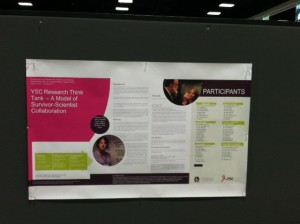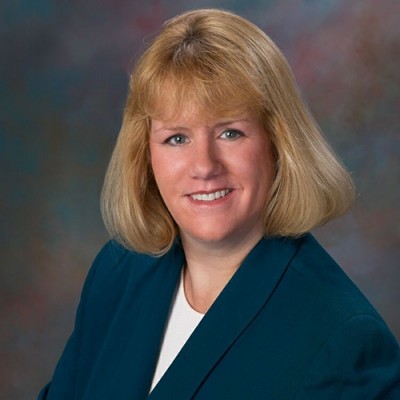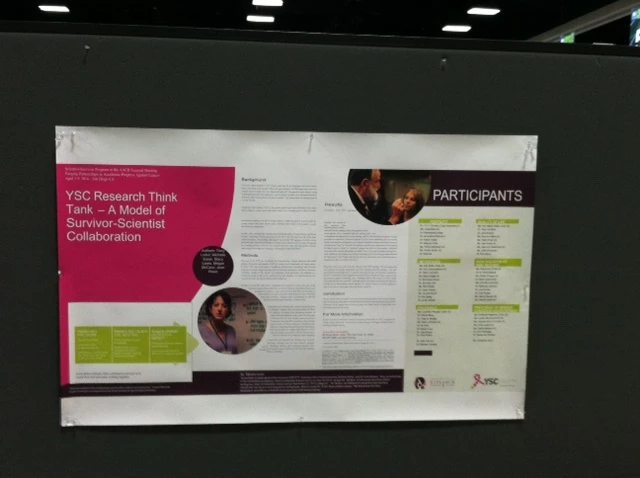
Last December, a friend of mine who shares my interest in breast cancer research suggested that I apply for the Scientist - Survivor Program (SSP) at the annual conference of the American Association for Cancer Research (AACR). Having been through treatment for breast cancer back in 2006, I already thought of myself as a "scientist survivor," (e.g. someone who managed to survive despite what the scientists did to me). I was intrigued enough to look into the program, and I'm really glad I did. The program brings survivors and patient advocates of all types of cancer together with cancer researchers from the entire research spectrum to maximize the advocates' experience at the AACR conference.
The goal of the SSP is to educate advocates about the current state of cancer research. This year, one of the central topics of the conference was immunology. While researchers are using different approaches, all are working to harness the body's own immune system to attack cancer cells. Researchers reported on some great successes with melanoma and various blood cancers, but the same strategies have not worked quite as well with other cancers. The goal now is to find out why that is and determine how to replicate these good results.
Another area that got a lot of attention was what I call "real-time medicine." With breast cancer, most patients have a biopsy at or shortly after diagnosis and treatment decisions are made based on that biopsy. If the cancer later metastasizes or recurs, rarely is there ever a new biopsy. Instead, treatment decisions are usually based on the assumption that the biology of the recurrence or the metastasis is the same as the original tumor. This is assumed even though researchers know that cancer cells may have changed over time. However, several researchers are working on finding ways to make treatment more responsive to the changing cancer cells. They are drawing blood to obtain circulating tumor cells (CTCs) at numerous times during treatment, analyzing the characteristics of those CTCs, and then using that information to determine whether a particular treatment is working or whether a different treatment regimen might be more effective. Thus, cancer treatment can respond in "real time" to changes in the cancer cells. While this research is still in its preliminary stages, it shows great promise as a way to make cancer treatments more effective.
In addition to attending sessions open to all attendees, SSP advocates also had the chance to attend special advocate-only sessions with world-renowned researchers that were intended to give the advocates a better understanding of specific research areas and topics, as well as to explain concepts we were hearing about in language a layperson could understand. Topics included immunology, the problem of dealing with "big data," advances in gene sequencing, the biomechanics of cancer, and genomics.
The SSP, however, is not just about sitting and listening to others. Advocates become participants in the conference by presenting posters about their advocacy work at two poster sessions. Teams of advocates and scientists worked together to answer "challenge questions" that addressed broad, cutting-edge issues relating to cancer research. Advocates also spent an evening participating in a mock tumor board based on several real cases.
I will admit that there were times during the conference that I felt overwhelmed. The size of the conference was intimidating, and I sometimes felt like I had been dropped onto a new planet where everyone was speaking a different language. I learned that I can create and present a poster without using glitter and glue. I also learned that I can prepare a PowerPoint presentation on the fly. More importantly, I learned that I can not only attend a scientific conference, but also actively participate in one. That made me truly a Scientist-Survivor.
Tracy Leduc is an 8-year breast cancer survivor. She focuses her volunteer work on breast cancer research advocacy and spends her vacation time attending scientific conferences. She was an advocate member of the YSC Research Think Tank.





